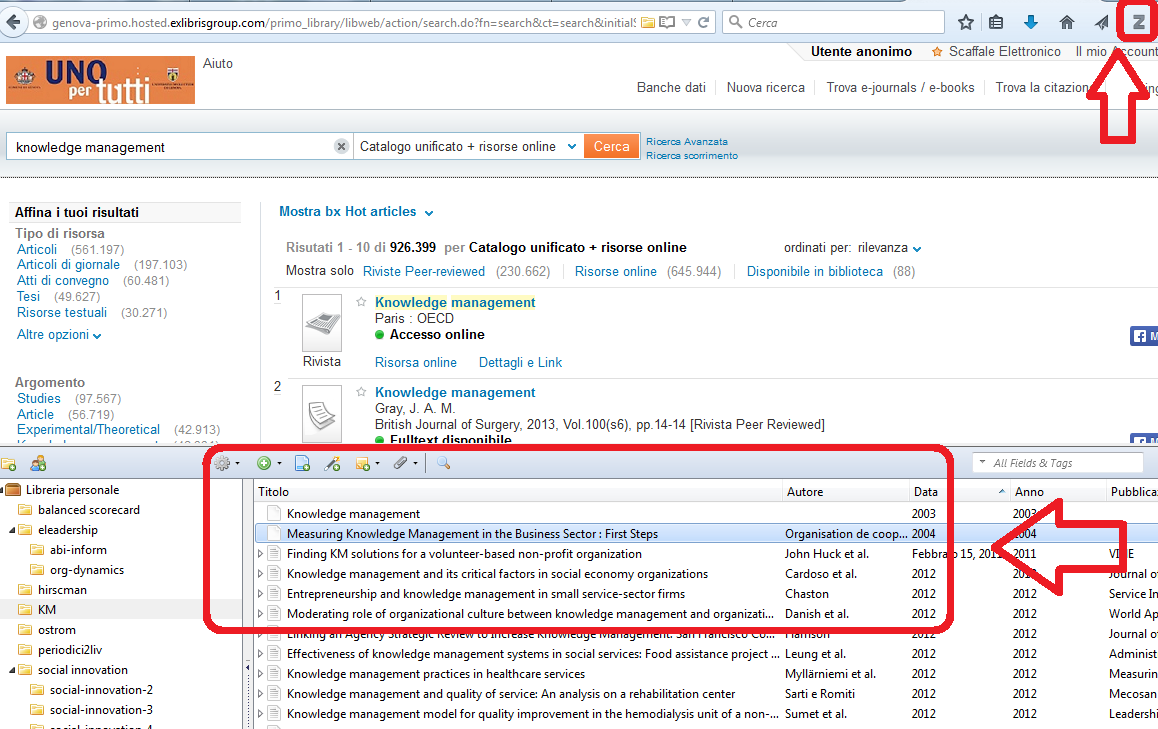
- #Zotero firefox plugin install
- #Zotero firefox plugin update
- #Zotero firefox plugin software
- #Zotero firefox plugin code
LibX scans pages as the browser loads them and checks for metadata, such as book and article citations. I have been hesitant to offer LibX workshops thinking that it might take very little time to teach and might not “fill out” an entire workshop. Drawbacks include not being able to see the student’s screen when problems occur. Zotero instruction seems to work well in the online format since the student can follow on their own computer while the instructor demonstrates in the workshop window. Our library has offered workshops (in person and online) for Zotero, but not yet for LibX. Zotero also includes a second component, the Word or OpenOffice toolbar, which must be installed separately in order to use some of the bibliography creation features (see below). Firefox installs add-ons on a per-user basis, so make sure that once installed, they appear for all users logging into the computers.
#Zotero firefox plugin install
The simplest way to provide these programs to users is of course to simply install them on your public computers. Of course this requires that users first know of their existence and understand the benefits of using them. Unlike Web-based research tools, researchers must take the active step of installing these programs on their own computers in order to use them.
#Zotero firefox plugin software
It also allows for far more frequent improvements to the software than most commercial programs provide. (The Internet Explorer version of LibX must be updated manually by downloading a new version from the library’s Web site and running an executable file.) This allows the library to push out new search options, and Zotero’s developers to push updates ranging from new features to updated bibliographic styles. This process is unlikely to confuse even users who have never installed software.
#Zotero firefox plugin update
Firefox periodically checks for new versions of all its add-ons and prompts the user to update with a few clicks.
#Zotero firefox plugin code
In the unlikely event that the providers of either program discontinued supporting them, another institution could simply download the source code and take over development.Īs Firefox plugins, both LibX and Zotero are self-updating.

Universities develop both programs, so they are highly attuned to the needs of academic researchers. (This is more useful for Zotero than LibX, since LibX is customized for use with a particular library’s resources.)īecause they are also “free as in speech” (free to use as one sees fit), the library has no vendors to deal with when adopting these programs. Unlike our licensed databases and software, researchers can continue to use these tools after they graduate or move away from college. Both programs are “free as in beer” (free of cost), so any library or user can download them without restriction. Some of the benefits of choosing open source programs are obvious. Both plug-ins are free open source tools developed by universities for academic researchers. They run on any operating system that will run Firefox, and LibX will also work with Internet Explorer for Windows. Zotero is a citation manager and bibliography creator that is as easy to use as iTunes.

The LibX search toolbar can be customized to search your library’s catalog and databases, insert library links into sites like Amazon and Wikipedia, and more. Two such add-ons are LibX, which enhances the search process, and Zotero, which eases saving, organizing, and citing sources. The extensible nature of the Firefox browser in particular makes it easy to install add-ons that help researchers at every stage of the research cycle, from search and discovery to writing and citation. Most of our powerful research tools now exist on the Web, but libraries shouldn’t overlook the ability to add research features to the browser software itself.


 0 kommentar(er)
0 kommentar(er)
